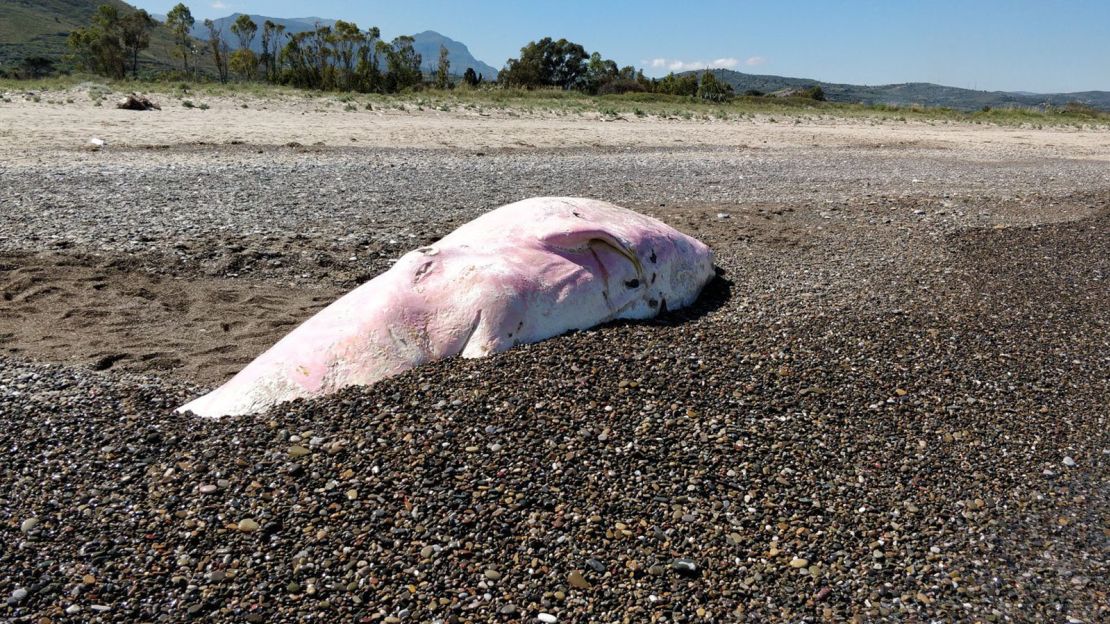Environmental campaigners are raising the alarm after a sperm whale was found dead on an Italian beach with plastic in its stomach.
Greenpeace Italia said the carcass of the young animal – estimated to be 7 years old – washed up Friday on the beach at Cefalu, a popular tourist destination in Sicily.
Grim images posted on the group’s Facebook page show the whale lying on the beach, its stomach full of plastic bags and other plastic objects.
“As you can see from the images we’re sharing, a lot of plastic was found in its stomach,” Greenpeace Italia’s Giorgia Monti said in a statement. “A probe of the sperm whale’s death has just started and we don’t know yet if the animal died because of this, but we certainly can’t pretend that nothing is happening.”
“Five sperm whales beached on Italian coasts in the last five months,” Monti added.
Experts performed a necropsy Sunday on the whale on the beach. Carmelo Isgro, who works at the University of Messina’s natural history museum and was involved in the procedure, shared graphic videos and images on Facebook.

One video shows the moment scientists opened the whale’s stomach and found it full of plastic bags.
“These are the squid the whale ate – and this is all plastic,” Isgro says in the video.
In another video, Isgro is seen putting the plastic he recovered from the whale’s body in a recycling bin. “It’s impressive. Unbelievable,” he says in the video.
Isgro told CNN there were “several kilograms worth of plastic” inside the stomach.
“The plastic probably created a block that didn’t let the food in,” he said. “That’s very likely to be the cause of death. We have not found signs that could indicate another possible reason.”
He said that the whale was so young that “her teeth haven’t come out yet.”
“I’m still shocked because her belly was completely full, swollen with plastic,” Isgro said.
Sperm whales usually live for 70-80 years, he said.
In April, a pregnant sperm whale was found in Sardinia with 22 kilograms (49 pounds) of plastic in its stomach. The dead animal, which was eight meters (26 feet) long, washed up on a beach in the tourist hotspot of Porto Cervo.
“The sea is sending us a cry of alarm, a desperate SOS. We must intervene immediately to save the wonderful creatures that inhabit it.” Monti said.
Later this month, Greenpeace and another group, the Blue Dream Project, will launch a project to monitor plastic pollution levels at sea over three weeks, with a particular focus on the central Tyrrhenian Sea, off the west coast of Italy.



